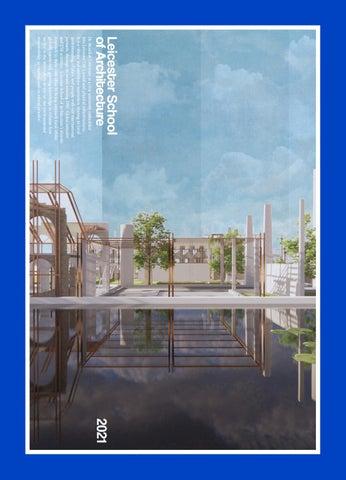Future-Proof Education: How to Prepare Students for Tomorrow’s Careers
The pace of change in our world is unprecedented.technologies, industries, and the workforce are evolving faster than ever. To keep up, today’s students need more than just textbook knowledge—they need future-proof skills, mindsets, and experiences. In this comprehensive guide, we’ll explore actionable strategies, real-world insights, and proven methods to help educators, parents, and students prepare for tomorrow’s careers, today.
Understanding Future-Proof Education
future-proof education refers to an adaptive, flexible approach to teaching and learning that equips students with the skills and mindsets necessary to thrive in rapidly changing workplaces. With the surge in artificial intelligence, automation, remote work, and global connectivity, the careers of tomorrow will demand critical thinking, creativity, lifelong learning, and digital literacy.
- Keywords: Future-proof education, tomorrow’s careers, career-ready skills, adaptive learning, digital literacy
- Encourages a holistic approach beyond core academics
- Focuses on developing soft, digital, and transferable skills
- Prepares students for industries and roles that don’t exist yet
Why Future-Proofing Matters: Key Benefits for Students
Preparing students for the future isn’t just a buzzword—it’s a fundamental responsibility. Here’s why future-proof education is essential:
- Responsive skillset: Students adapt to new technologies,tools,and processes.
- Global Competitiveness: Graduates remain employable in international markets.
- Career Resilience: Lifelong learning helps people pivot between roles as industries change.
- Personal Growth: Emotional intelligence, communication, and collaboration create well-rounded adults.
- Entrepreneurial Mindset: Students are empowered to innovate, create, and lead.
According to the World Economic Forum, over 65% of children entering primary school today will pursue careers that don’t currently exist. This highlights the critical need for forward-thinking and adaptable educational practices.
Core Skills for Tomorrow’s Careers
Technical and Digital Skills
- Coding, programming, and computational thinking
- Data literacy and analytics
- Digital communication tools (remote work platforms, collaboration apps)
- Understanding cybersecurity and digital ethics
Human and Soft Skills
- Critical thinking and problem-solving
- Creativity and innovation
- Collaboration and teamwork
- Emotional intelligence and empathy
- Resilience and adaptability
- Effective communication
Lifelong Learning
- Growth mindset and self-motivation
- Curiosity and willingness to continuously learn
- Agility in navigating change
practical Tips: how Educators and Parents Can Prepare Students
Integrate Technology and digital Tools
- Use online learning platforms for independent study and collaboration
- Incorporate coding, robotics, or AI modules in curriculum
- Encourage digital portfolio creation to showcase skills and achievements
Emphasize Project-Based and Experiential Learning
- Allow students to work in teams on real-world problems
- Partner with local businesses or organizations for internships and job shadowing
- Support participation in hackathons, contests, and community initiatives
promote Lifelong Learning and Growth Mindset
- Encourage curiosity and self-directed skills development
- Teach students how to learn, not just what to learn
- Foster a culture of resilience and adaptability by normalizing failure as part of growth
Integrate Career Guidance Early
- Expose students to emerging career fields and trends
- Offer mentorship programs with industry professionals
- organize workshops about soft skills, freelancing, and entrepreneurship
Case Study: Finland’s Approach to Future-Proof Education
Finland consistently scores high in global education rankings. One key to their success is a strong emphasis on holistic skills development, rather than rote memorization and standardized testing.
- Students work on cross-disciplinary projects combining science, art, and technology
- Teachers act as facilitators, guiding curiosity and collaboration
- The curriculum is flexible, evolving with feedback from educators, parents, and industry partners
- Schools encourage well-being and emotional development, recognizing their role in academic achievement
This approach has resulted in not only academic excellence but also high levels of student satisfaction, adaptability, and creative problem-solving—qualities essential for the careers of tomorrow.
First-Hand Experience: Insights From a Future-Ready Graduate
“My school encouraged project-based learning and provided access to tech labs where we could experiment with robotics and coding. After graduation, I felt confident exploring careers in data science—even though the field wasn’t covered in depth during my classes. The emphasis on adaptability and problem-solving is what helped me transition into new roles.”
— Jordan, 25, data Analyst
Jordan’s story illustrates how a future-proof approach supports graduates in navigating jobs that are still emerging. When schools focus on adaptable skills and experiential learning, students feel ready to tackle the unknown with confidence.
Preparing for Tomorrow: Action Steps for Students
- Stay Curious: Follow technology trends, join online forums, and learn from diverse sources.
- build Your Digital Presence: Create a LinkedIn profile, digital portfolio, or personal website showcasing your skills and projects.
- Find a Mentor: Connect with professionals in fields that interest you—ask for guidance and feedback.
- Develop Transferable Skills: Focus on critical thinking, communication, and collaboration that apply in any career.
- Pursue Certifications and Online Courses: Enroll in Coursera, edX, Udemy, or other platforms to stay ahead.
- Network: Attend career events, webinars, and join professional associations to build valuable connections.
Conclusion: Shaping Education for a Changing World
The future of work will reward those who are agile, digitally literate, self-motivated, and able to solve complex problems creatively. Educators,parents,and students must work together to future-proof education—blending core academics with soft skills,digital fluency,and a lifelong love of learning.
By fostering a growth mindset and embracing change,we can prepare the next generation to thrive in tomorrow’s careers—nonetheless of what those careers ultimately look like.The time to start is now.

